Chiffchaff, Tjiftjaf, ZilpZalp, Felosa-comum, Mosquitero Comúm
Spotted at Monte Horizonte in the Alentejo region of Portugal. Chiffchaff sound
The Common Chiffchaff, or simply the Chiffchaff, (Phylloscopus collybita) is a common and widespread leaf warbler which breeds in open woodlands throughout northern and temperate Europe and Asia.
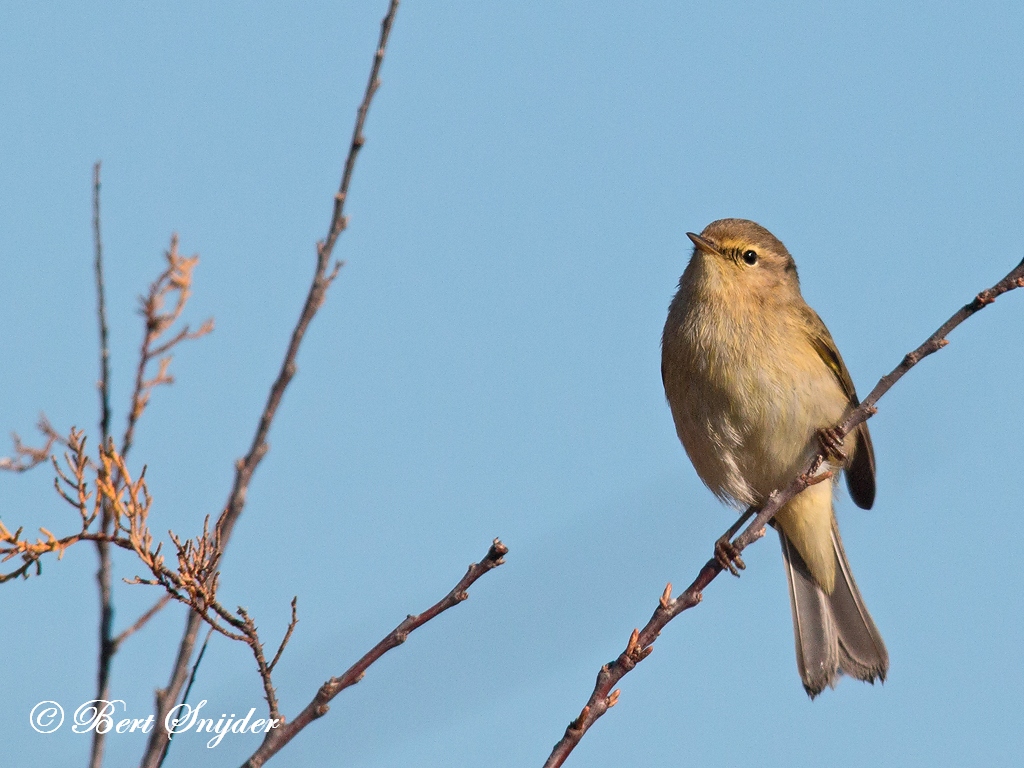
More photos at the bottom of this page:
It is a migratory passerine which winters in southern and western Europe, southern Asia and north Africa. Greenish-brown above and off-white below, it is named onomatopoeically for its simple chiff-chaff song. It has a number of subspecies, some of which are now treated as full species. The female builds a domed nest on or near the ground, and assumes most of the responsibility for brooding and feeding the chicks, whilst the male has little involvement in nesting, but defends his territory against rivals, and attacks potential predators.
A small insectivorous bird, it is subject to predation by mammals, such as cats and mustelids, and birds, particularly hawks of the genus Accipiter. It may also acquire external or internal parasites. Its large range and population mean that its status is secure, although one subspecies is probably extinct.
The Common Chiffchaff has three still commonly accepted subspecies, together with some from the Iberian Peninsula, the Canary Islands, and the Caucasus which are now more often treated as full species.
The Common Chiffchaff is a small, dumpy, 10–12 centimetres (4 in) long leaf warbler. The male weighs 7–8 grammes (0.28–0.31 oz), and the female 6–7 grammes (0.25–0.28 oz). The spring adult of the western nominate subspecies P. c. collybita has brown-washed dull green upperparts, off-white underparts becoming yellowish on the flanks, and a short whitish supercilium. It has dark legs, a fine dark bill, and short primary projection (extension of the flight feathers beyond the folded wing). As the plumage wears, it gets duller and browner, and the yellow on the flanks tends to be lost, but after the breeding season there is a prolonged complete moult before migration. The newly fledged juvenile is browner above than the adult, with yellow-white underparts, but moults about 10 weeks after acquiring its first plumage. After moulting, both the adult and the juvenile have brighter and greener upperparts and a paler supercilium.
This warbler gets its name from its simple distinctive song, a repetitive cheerful chiff-chaff. This song is one of the first avian signs that spring has returned. Its call is a hweet, less disyllabic than the hooeet of the Willow Warbler or hu-it of the Western Bonelli’s Warbler.
The song differs from that of the Iberian Chiffchaff, which has a shorter djup djup djup wheep wheep chittichittichiittichitta. However, mixed singers occur in the hybridisation zone and elsewhere, and can be difficult to allocate to species.
When not singing, the Common Chiffchaff can be difficult to distinguish from other leaf warblers with greenish upperparts and whitish underparts, particularly the Willow Warbler. However, that species has a longer primary projection, a sleeker, brighter appearance and generally pale legs. Bonelli’s Warbler (P. bonelli) might be confused with the Common Chiffchaff subspecies tristis, but it has a plain face and green in the wings. The Common Chiffchaff also has rounded wings in flight, and a diagnostic tail movement consisting of a dip, then sidewards wag, that distinguishes it from other Phylloscopus warblers and gives rise to the name “tailwagger” in India.
Perhaps the greatest challenge is distinguishing non-singing birds of the nominate subspecies from Iberian Chiffchaff in the field. In Great Britain and the Netherlands, all accepted records of vagrant Iberian Chiffchaffs relate to singing males.
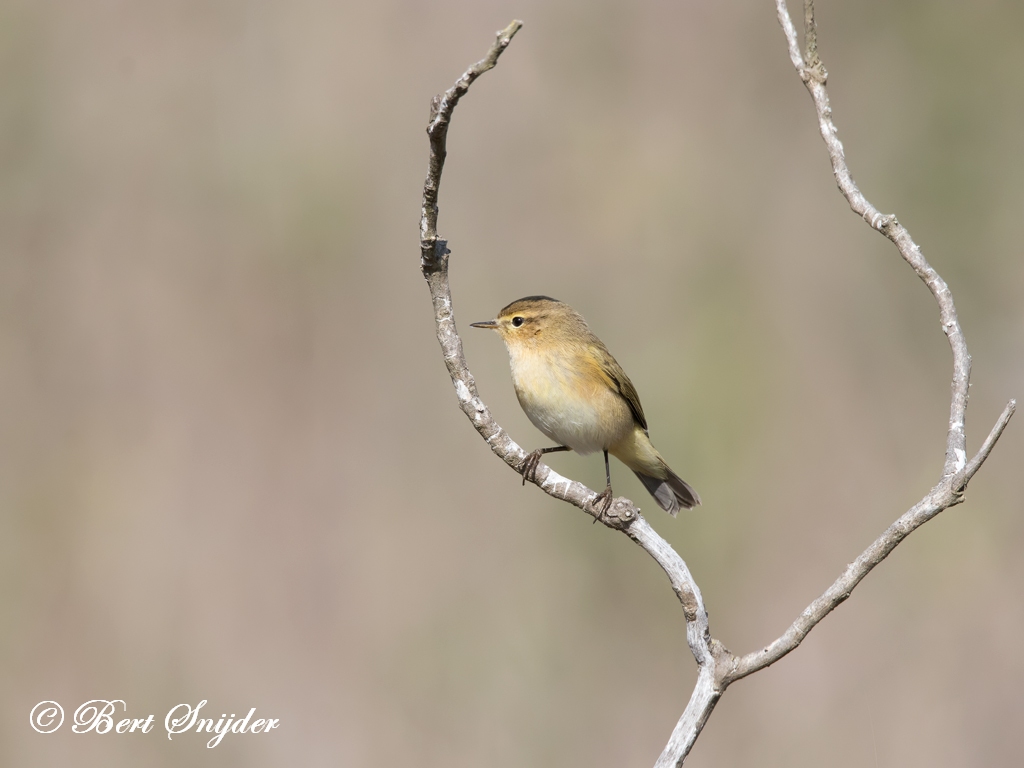
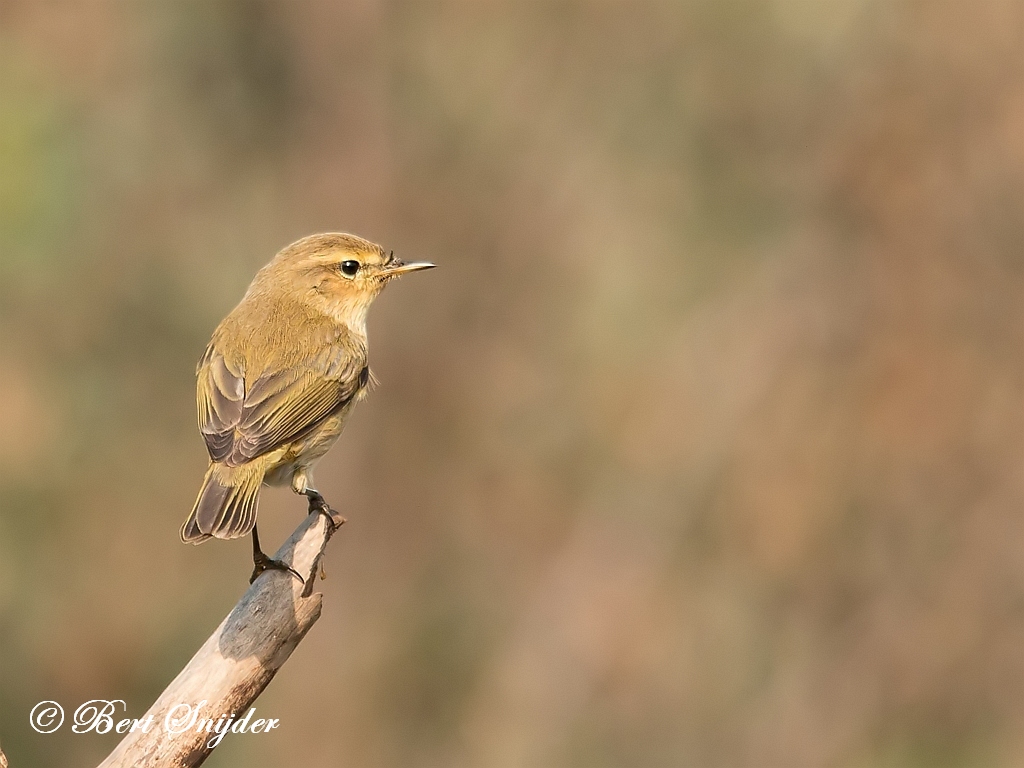
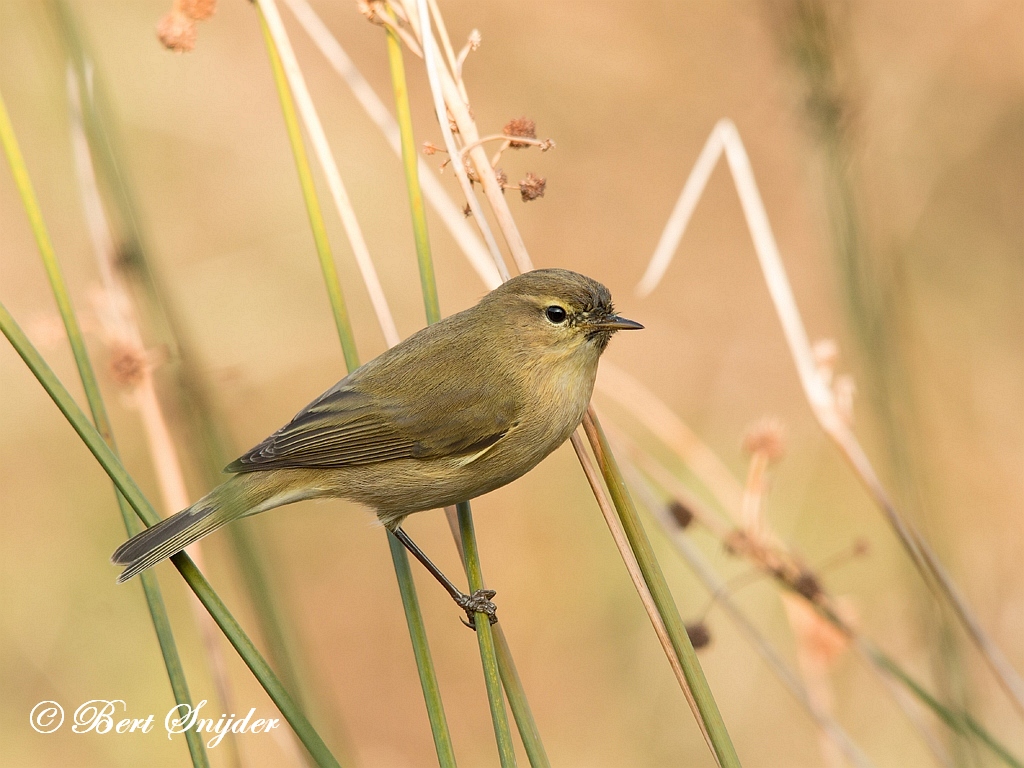
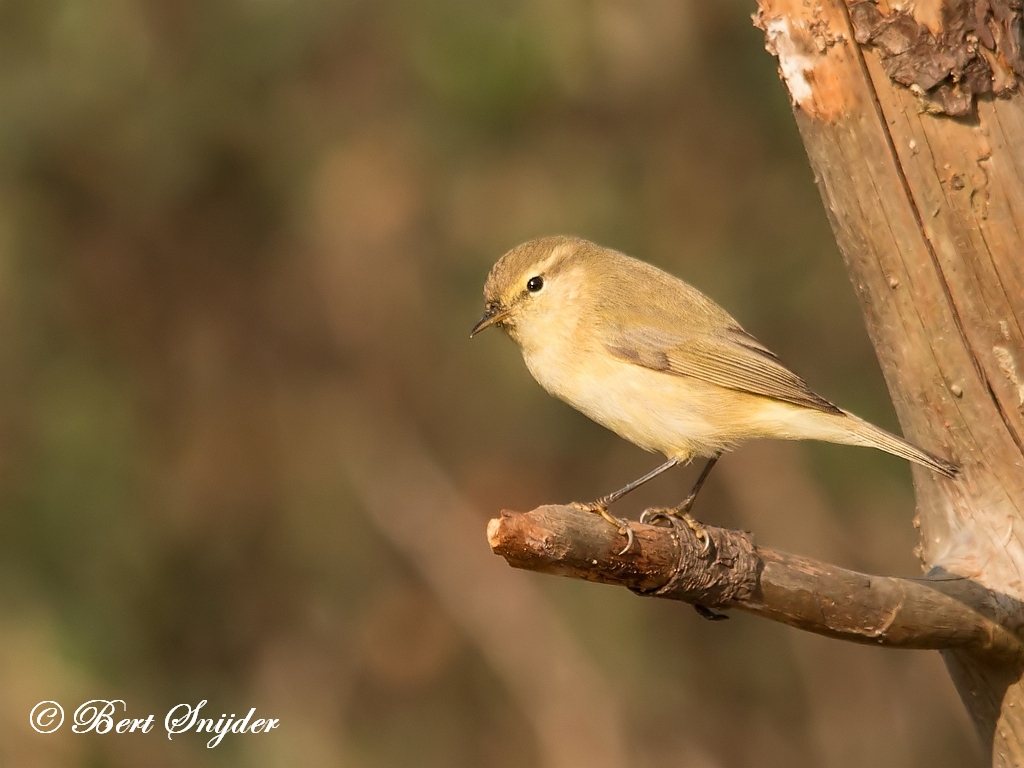
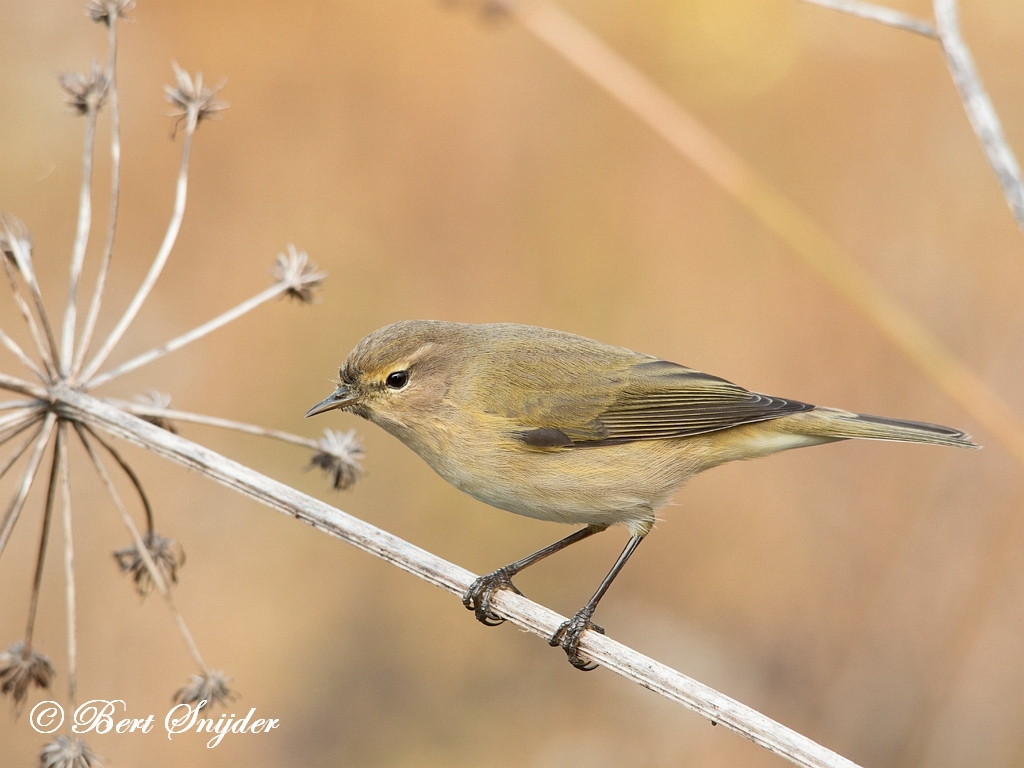
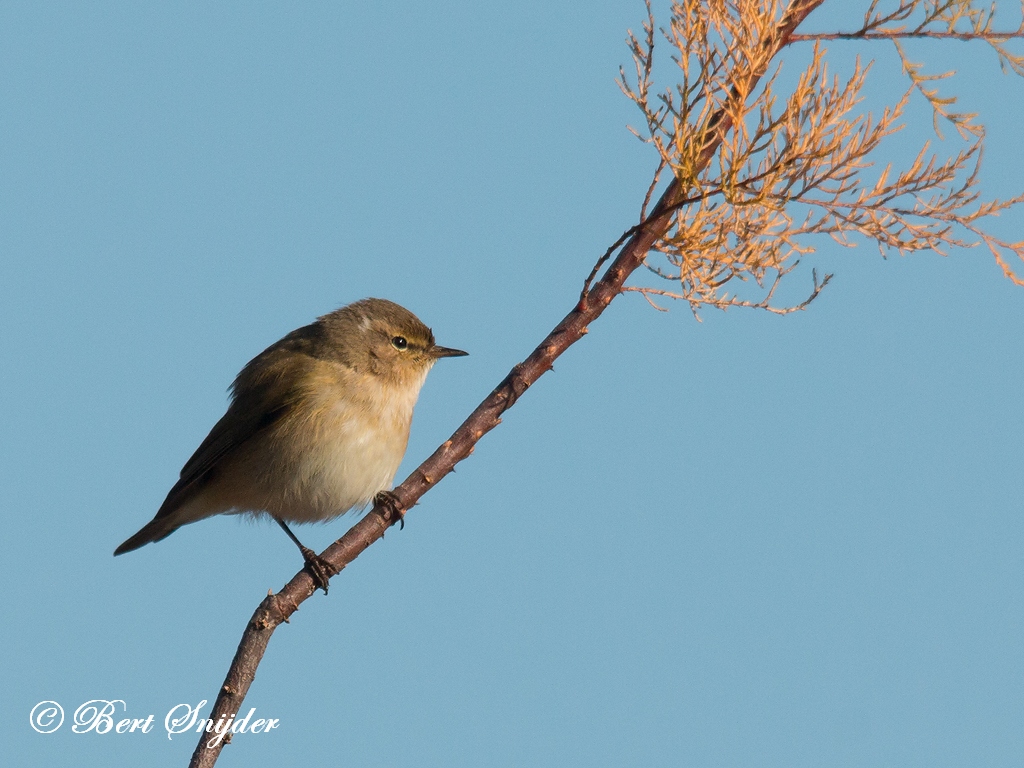
Other synonyms:
Asturian: Pioyín
Breton: Ar puig chip-chap, Mouchig gwenn
Catalan: Busquereta xerraire, Mosquiter comú, Ull de bou
Catalan (Balears): Ull de bou
Valencian: Busquereta xerraire
Czech: Budnícek menší
Welsh: Aderyn melyn bach, Dryw felen, Pia bach, Siff-saff, Telor goesddu’r helyg, Y bi bach
Danish: Gransanger
German: Weidenlaubsänger, Zilpzalp, Zilpzalp-collybita
English: Brown Leaf-warbler, Chiffchaff, Chiffchaff Leaf-warbler, Common Chiffchaff, Eurasian Chiffchaff, Northern Chiffchaff
Spanish: Mosquitero Comun, Mosquitero Común, Mosquitero silbador
Estonian: Silksolk, Väike lehelind, Väike-lehelind, Väike-lehelind e. silksolk, Väike-lehelind, silksolk
Basque: Mosquiter comú , Txio arrunta
Finnish: Tiltaltti
Faroese: Grannljómari
French: Pouillot véloce, Pouillot vêloce
Irish: Tiuf-Teaf
Gaelic: Caifean
Galician: Mosquiter comú , Picafollas común
Manx: Beealarey, Beeallerey
Croatian: Zviždak
Hungarian: Csilpcsalpfüzike, Csilpcsalp-füzike
Icelandic: Gransöngvari
Italian: Luí piccolo, Luì piccolo
Japanese: Chifu chafu, chifuchafu
Cornish: Chyff-chaff
Latin: Phylloscopus collybita, Phylloscopus collybita collybita, Phylloscopus collybita rufus
Limburgish: Briëmetaatsj, Brièmtaatsj
Lithuanian: Pilkoji pecialinda
Maltese: Vjolin tax-Xitwa
Dutch: Tjiftjaf
Norwegian: Gransanger
Polish: pierwiosnek, pierwiosnek (zwyczajny), pierwiosnek zwyczajny
Portuguese: felosa comum, Felosa-comum
Romansh: Fegliarel da salesch
Scots: Caifean
Northern Sami: Guossavizar
Slovak: kolibiarik cipcavý
Slovenian: vrbja listnica, vrbji kovacek
Albanian: Fishkëllyesi i vogël
Serbian: Obican zviždak, obicni zviždak
Swedish: Gransångare
Swahili: Kucha Sauti-mbili
Travel Birdwatching Holiday Alentejo, Vacation Portugal for birders to see birds on your trip. Guided Birdwatching Tours & Trips.